Aung San Suu Kyi, winner of the coveted Nobel Peace Prize, knows too well what it is like to be persecuted. So why is the political leader of Myanmar allowing hundreds of thousands of Rohingyan Muslims to be driven from their country in what the UN describes as “ethnic cleansing”? William Langley investigates.

Today, 72-year-old Suu Kyi is an international pariah, her saintly reputation shattered. The same organisations that handed her prizes are scrambling to disassociate themselves from her, and her Hollywood fan club has retreated into embarrassed silence. Her old Oxford college, St Hugh’s, has taken her portrait down, and The Nobel Peace Prize committee, which gave her its award in 1991, is under pressure to rescind the honour.
At the core of Suu Kyi’s fall from grace is an unfolding human disaster in the west of the country, where hundreds of thousands of Muslims, a religious minority known as the Rohingya, have been driven from their homes in a wave of military operations characterised by the United Nations as “a textbook example of ethnic cleansing”. Witnesses have described mass shootings, rapes and burnings, and the exodus has created a vast refugee crisis in neighbouring Bangladesh.
To the dismay of her former admirers, Suu Kyi has refused not only to intervene, but even to criticise the military’s onslaught. In the few – mostly prickly and defensive – statements she has made, she has dismissed the allegations of atrocities as exaggerations, and claimed that the actions are needed to curb terrorism.
Diese Geschichte stammt aus der April 2018-Ausgabe von The Australian Women's Weekly.
Starten Sie Ihre 7-tägige kostenlose Testversion von Magzter GOLD, um auf Tausende kuratierte Premium-Storys sowie über 8.000 Zeitschriften und Zeitungen zuzugreifen.
Bereits Abonnent ? Anmelden
Diese Geschichte stammt aus der April 2018-Ausgabe von The Australian Women's Weekly.
Starten Sie Ihre 7-tägige kostenlose Testversion von Magzter GOLD, um auf Tausende kuratierte Premium-Storys sowie über 8.000 Zeitschriften und Zeitungen zuzugreifen.
Bereits Abonnent? Anmelden
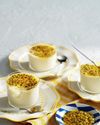
Maggie's kitchen
Maggie Beer's delicious veg patties - perfect for lunch, dinner or a snack - plus a simple nostalgic pudding with fresh passionfruit.

Reclaim your brain
Attention span short? Thoughts foggy? Memory full of gaps? Brigid Moss investigates the latest ways to sharpen your thinking.
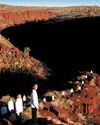
The girls from Oz
Melbourne music teacher Judith Curphey challenged the patriarchy when she started Australia's first all-girls choir. Forty years later that bold vision has 6500 members, life-changing programs and a new branch of the sisterhood in Singapore.
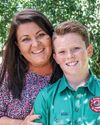
One kid can change the world
In 2018, 10-year-old Jack Berne started A Fiver for a Farmer to raise funds for drought relief. He and mum Prue share what happened next.
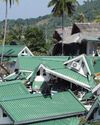
AFTER THE WAVE
Twenty years ago, the Boxing Day tsunami tore across the Indian Ocean, shredding towns, villages and holiday resorts, and killing hundreds of thousands of people from Indonesia to Africa. Three Australians share their memories of terror, loss and survival with The Weekly.

PATRICIA KARVELAS How childhood tragedy shaped me
Patricia Karvelas hustled hard to chase her dreams, but it wasn't easy. In a deeply personal interview, the ABC host talks about family loss, finding love, battles fought and motherhood.

Ripe for the picking
Buy a kilo or two of fresh Australian apricots because they're at their peak sweetness now and take inspiration from our lush recipe ideas that showcase this divine stone fruit.
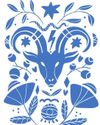
Your stars for 2025
The Weekly’s astrologer, Lilith Rocha, reveals what’s in store for your astrological sign in 2025. For your monthly horoscope, turn to page 192.
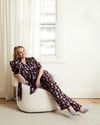
MEL SCHILLING Cancer made me look at myself differently'
One year on from going public with her bowel cancer diagnosis, Mel Schilling reveals where she's at with her health journey and how it's changed her irrevocably.
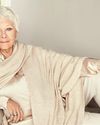
Nothing like this Dame Judi
A few weeks before her 90th birthday, the acting legend jumped on a phone call with The Weekly to talk about her extraordinary life – and what’s still to come.